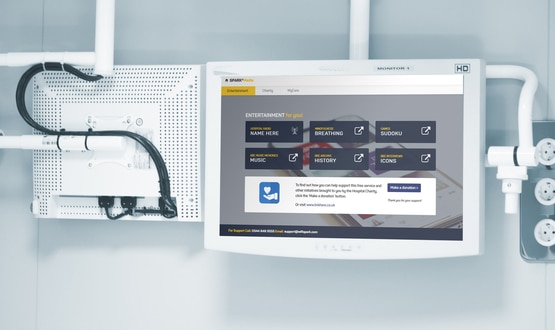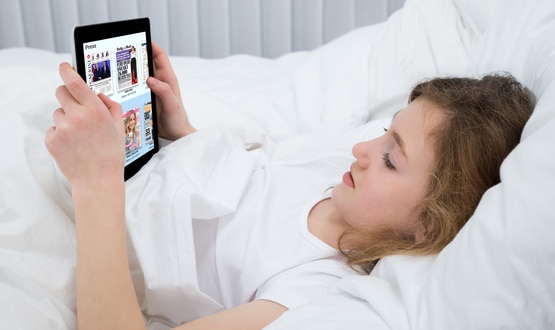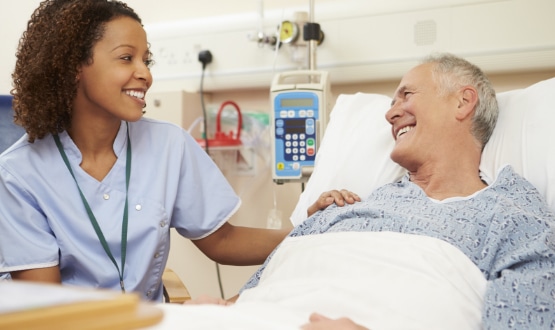WiFi Spark acquires Hospedia and plans free-to-view bedside terminals

WiFi Spark is to take over the management of Hospedia, a company which supplies bedside terminals to three quarters of the UK’s acute hospitals.
The acquisition of Hospedia by WiFi Spark sees the latter take step away from the current systems whereby patients pay to receive entertainment and call facilities. Instead, WiFi Spark will offer the option of installing new software on terminals which will enable patients to access its SPARK Media entertainment package for free.
Additionally, a further upgrade will allow staff to use the terminals to access trust IT systems.
The cost of the upgrade would be met by NHS trusts, health boards and their charities and WiFi Spark hopes that they would be happy to meet the costs in return for improved patient experience and to gain clinician access on the terminals.
Should they choose, trusts can opt to stick with the current ‘patient pays’ model. However the company estimates that most trusts would pay less than £1 per bed, per day for the upgrade. And patients will still have the option to pay for additional movie services on the upgraded terminals if they wish to.
Matt O’Donovan, founder and chief executive of WiFi Spark, says: “This provision will benefit trusts the most, because the bedside terminals will become a proper asset, providing benefits for both patients and clinicians.
“For patients to be able to watch TV and to have access to other entertainment options on these units, free of charge, will be a real boost to their morale and recovery. And for hospital staff, being able to use them for clinical purposes will make the fulfilment of tasks easier.”
The SPARK Media platform includes TV, radio, films, games, hospital radio, newspapers, magazines and outbound calls. It also allows trusts to add their own packages of therapy videos, leaflets, meal ordering and patient information.
The ability for clinicians to also utilise the terminals will make it easier for staff to use IT at a patient’s bedside. Leveraging existing infrastructure in this way will help to encourage digital maturity in the most effective possible way.
O’Donovan believes the move will be transformative for the NHS.
“The units will become the iPhone of healthcare,” he said.
“They will give patients a unified experience to engage and entertain them, while linking patients and clinicians to the patient record in real-time, at the bedside. The SPARK Media platform will support third party applications, enabling the most up-to-date experience for patients and clinicians alike.”
WiFi Spark has previously given its services for free. Over Christmas 2020 patients were able to access SPARK Media with no additional costs where its WiFi services were already installed. And at the height of the pandemic, WiFi Spark’s technology helped connect patients with loved ones, when its calling and entertainment apps were pre-loaded on tablets and loaned to patients at seven trusts.
The phased roll-out of the new operational model is expected to take around three years. Trusts and health boards will participate in the transition according to their funding programme.




